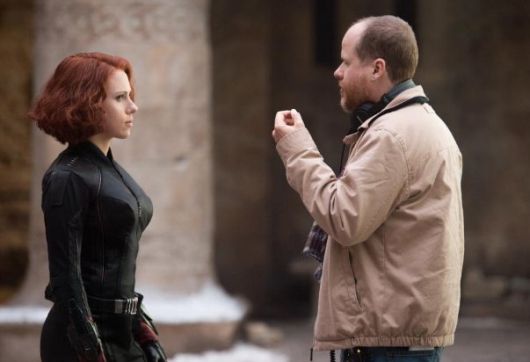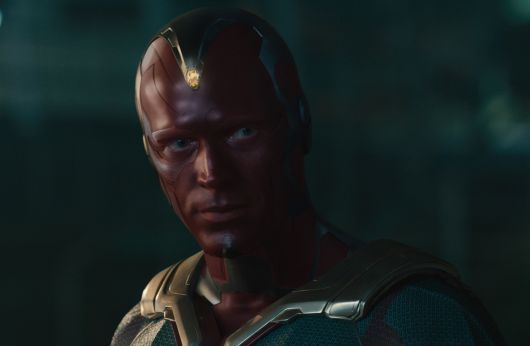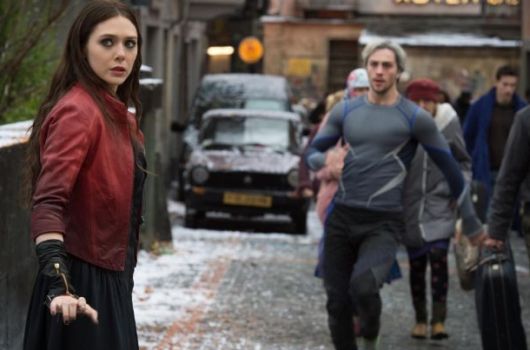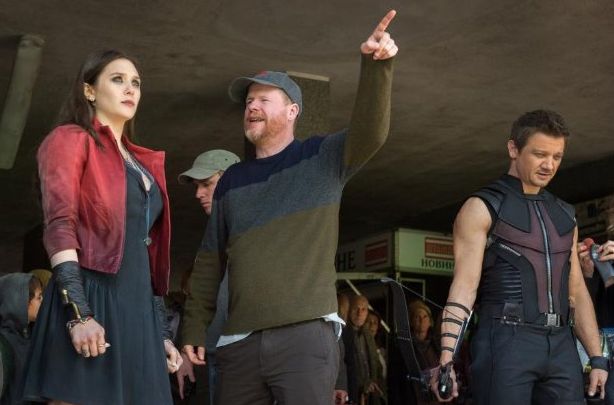 FILM
FILM In Which We Crack Open Scarlett's Shell
 Thursday, April 6, 2017 at 10:03AM
Thursday, April 6, 2017 at 10:03AM 
Kristen Stewart In The Car, With The Anime
by ETHAN PETERSON
Ghost in the Shell
dir. Rupert Sanders
106 minutes
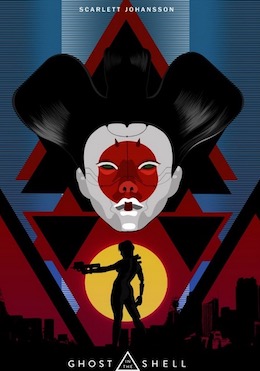 Mira Killian (Scarlett Johansson) has this faux-anime haircut where as she slips down a hallway her hair is fringing upwards and downwards. She murders an android in the first ten minutes of Ghost in the Shell, and afterwards she is very upset, since her mind is in an inorganic body. "You're not like that," explains her partner Batou (Pilou Asbaek). Well, her stilted acting is exactly like that, so it is odd that it turns out that before her incarnation as Scarlett Johansson, she was a human Japanese anti-augmentation activist.
Mira Killian (Scarlett Johansson) has this faux-anime haircut where as she slips down a hallway her hair is fringing upwards and downwards. She murders an android in the first ten minutes of Ghost in the Shell, and afterwards she is very upset, since her mind is in an inorganic body. "You're not like that," explains her partner Batou (Pilou Asbaek). Well, her stilted acting is exactly like that, so it is odd that it turns out that before her incarnation as Scarlett Johansson, she was a human Japanese anti-augmentation activist.
Scarlett's wretched performance in Lost in Translation made her the poster child for misunderstanding the Japanese. This version of Ghost in the Shell has been absorbed in some controversy or other since it was announced, even though making crude American versions of foreign stories has become quite routine. The nation of Japan requires no protection from anyone, and although they have not appropriated as many cultural traditions as they have exported, they look upon American adaptations of their IP as amusing parallel universes. The sensitive aspect of this particular casting was that Asian actors have not been as successful as actors of other races in breaking into leading roles, and Paramount accounted the Pepsi-esque kerfluffle as the reason no one has gone to see Ghost in the Shell in theaters.
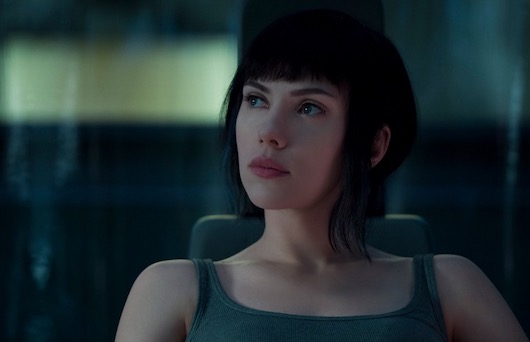
Then again, would you really prefer a Japanese actress be subjected to Rupert Sanders' version of Ghost in the Shell? This is the kind of mess that probably should have been canned on the set. The voicework done by Michael Pitt in this movie is so amateurish it could have been present in a Sharknado sequel. In one scene Scarlett is about to be raped by a variety of Japanese mobsters, and she is tazed by them repeatedly before killing them all. In another she interrogates a man who is clearly innocent for ten minutes of screen time. Her breasts look disturbingly small, like they were altered in post, and her eyes are made slightly ethnic as well.
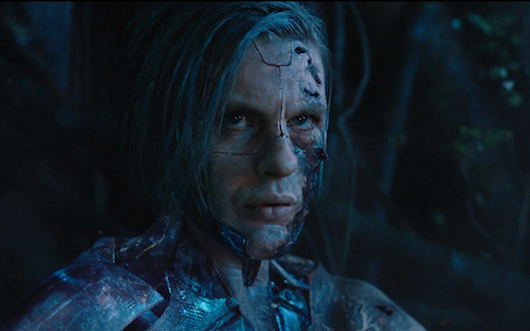
What surrounds her has the appearance and quality of the shit Luc Besson takes almost every morning. At some point we begin to detect that Ghost in the Shell is just a big stall with no discernible story, with all the texture and emotion of a fan-film. Ghost in the Shell's director Rupert Sanders is most famous for cheating on his wife with Kristen Stewart, easily the finest artistic decision he ever made. This was the fifth of sixth draft of a script designed to translate the emotional reserve resonant in the original medium into something understandable for a mass audience.
The art direction here is a stolid mess, from the flat representation of Killian's bodysuit to the enormous, unexplained avatar heads dotting the landscape of this city. We never get any sense of the setting as a place where people actually reside. Sanders has clearly seen Blade Runner and virtually nothing else in this genre.
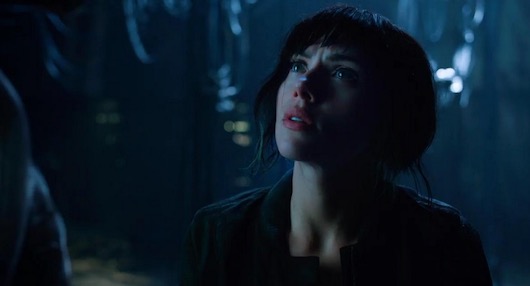
There is this great scene in Blade Runner where one of the characters sees an android waiting for him outside his apartment. After a brief conversation he invites her up, and we see this massive apartment complex from the inside, realizing there is nominal safety behind one of the doors, only we do not know exactly one, or what else might be behind it. This sense of dread and hope is accomplished in under a minute as they walk to the door.
Sanders is hopeless when it comes to creating any kind of atmosphere. He cannot feasibly make Ghost in the Shell gritty since it is not really that kind of story, give that the protagonists are police officers. He cannot really focus on the technical aspects of a sentient entity outside of a corporeal body, since he and screenwriter William Wheeler have clearly not thought for more than thirty seconds about these issues. As Killian's creator, Juliette Binoche gets all of six or seven incredibly cliched lines before she is quite predictably murdered. Nor can he reframe Ghost in the Shell as an action-centric revenge piece, since that is not really the story for the most of the running time, and his command of the gunplay and intricate cinematography required to make it exciting is nonexistent.
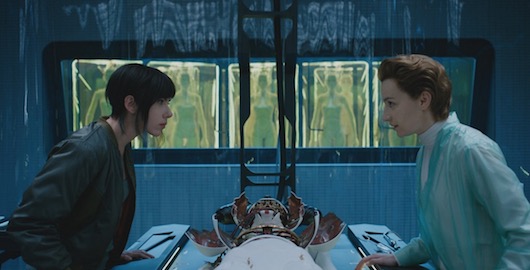
Ghost in the Shell goes wrong in so many directions, but even the empty, um, shell of something beautiful could have been entertaining enough for ninety minutes. Hell, one of John Woo's best movies had substantially less plot than this but overcame it simply through masterful choreography and a multiplicity of violence. Once they forced John Woo to make a movie about two guys who switched faces and he pulled it off. I still marvel at that. The art direction here is just not on the level of the original anime, and recreating various scenes and shots from the 1995 film just reminds us what a pale imitation we are forced to witness.
What is also troubling about Ghost in the Shell is that it reminds me that action movies are not made anymore without humor. In this new jokey environment, Ghost in the Shell is completely serious, barely even attempting to make jokes of any kind, and we are so not used to this after superhero movies that are really more ensemble comedies than anything else. Scarlett has her particular uses, but her poor comic timing is only exceeded in this medium by Alicia Vikander. Reportedly she pocketed $12 million for this piece of trash, so more power to her.
Ethan Peterson is the reviews editor of This Recording.









































